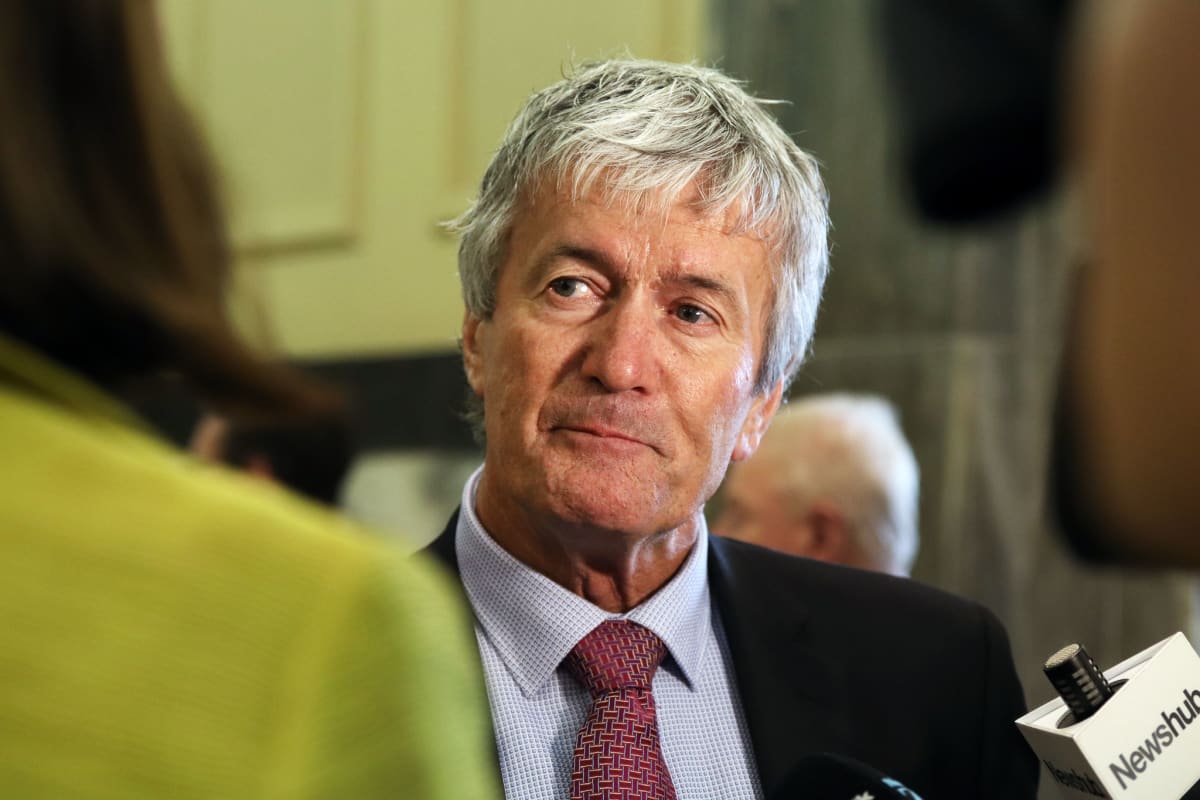
With New Zealand seeming to make little headway on a region-wide trade deal involving Gulf states, one of the countries has suggested the Government could look towards a separate deal
A senior minister from the United Arab Emirates has called on the Government to move ahead with a bilateral trade deal, as work towards a Gulf-wide deal drags into its 16th year with little progress.
Reem Al Hashimy, the UAE’s minister of state for international cooperation, visited New Zealand this week for a series of meetings with the business sector and government ministers.
Speaking to Newsroom on Tuesday, Al Hashimy said she had spent some of her time advocating for the two countries to work together on a comprehensive economic partnership agreement (the equivalent of a trade deal).
READ MORE: * Looking beyond Aussie and China for trade wins * The curious case of the 'secret' state gift
The UAE is among the members of the Gulf Cooperation Council (GCC), currently negotiating a Gulf-wide agreement with New Zealand that would include Bahrain, Kuwait, Oman, Qatar and Saudi Arabia.
However, talks have made little headway since 2009, when an agreement was negotiated and “substantially concluded” - only to go on hold due to a GCC moratorium on signing new trade deals.
Regional frictions since then, including a four-year blockade of Qatar by four other GCC members, have acted as an obstacle to renewed discussions. Discussions finally resumed last year, although Stuff reported the latest market access offer from the Gulf states fell “well short” of that from the aborted deal.
Al Hashimy told Newsroom the UAE did not want to undermine New Zealand’s negotiations with the GCC, but believed it was possible to “carve out” a separate bilateral agreement that would benefit both countries.
“These types of trade discussions are by their very nature, complex, quite detailed, and they merit a certain [amount] of depth and rigour, and each country also brings to the table their own pace and their own legislative complexity.”
While the UAE was a small nation in terms of population and geography, it had an “amplified footprint” and could act as a gateway for New Zealand businesses to expand into the broader region, including Africa.
'Separate politics from trade'
A potential complication could be the role of labour and environmental standards in any agreement.
The Government’s Trade for All Agenda includes an emphasis on addressing environmental issues, labour rights and inclusive growth among other issues. However, speaking to Politico earlier this year, UAE trade minister Dr Thani Al Zeyoudi said Western countries needed to “separate politics from trade and the economy” during negotiations.
"The minute we bring politics into discussions, we are diluting from the main objective of the agreements,” Al Zeyoudi said.
Green Party foreign affairs spokeswoman Golriz Ghahraman told Newsroom Kiwis expected the Government to uphold human rights and environmental standards in the trade deals it signed.
Ghahraman noted the country’s role in supporting Saudi Arabia’s war against Yemen, with RNZ revealing in 2021 that foreign affairs officials had approved the export of military equipment to the UAE despite concerns about alleged war crimes.
The Government should implement transparency and democracy mechanisms for the trade agreements it signed, while legislative change was also needed to set out minimum trade standards.
Al Hashimy said she agreed with her colleague that there needed to be “an area of separation” for issues not directly related to trade and investment, but there would be ways to cover elements such as the environment and the rights of farmers.
Asked how long it could take to negotiate a bilateral deal, she said the focus would be on quality over speed, although neither side would want talks to “go on ad nauseam”.

Trade and Export Growth Minister Damien O’Connor told Newsroom the UAE had already raised the possibility of a bilateral trade deal during his Dubai visit last year, with Al Hashimy having reinforced that enthusiasm when the pair met in Wellington.
While negotiations with the GCC had recently restarted and remained officials’ focus, those remained “very slow moving, and so clearly we have to…consider the options as to whether we would proceed with a bilateral [deal] with the UAE”.
O’Connor said he would be receiving fresh advice following discussions with the GCC this week, after which he would have a better idea of the relative merits of different approaches.
Carrying out negotiations with both the GCC and the UAE would not be mutually exclusive, but there could be complications when it came to negotiating resources and the speed at which progress could be made, he said.
The UAE is set to receive the world’s attention when it hosts the COP28 climate summit in November.
Al Hashimy said the country had already started discussions with other nations about what could be achieved at the summit, with a focus on fundamental issues like adaptation, mitigation and climate financing.
The decision to hold the event in the UAE has proved controversial, with human rights organisations criticising the country’s ongoing detention of Afghanistan evacuees and its imprisonment of government critics.
Al Hashimy said the UAE had been “a stalwart believer in the rights of individuals” since its founding in 1971, and upheld religious freedom and the rights of minorities in a country with residents holding over 200 different nationalities.
Sam Sachdeva is Newsroom's national affairs editor and author of The China Tightrope, an upcoming book about the changing NZ-China relationship to be published on May 30 by Allen & Unwin. The book can be pre-ordered at Whitcoulls, Paper Plus and Good Books, or from your local bookstore.







